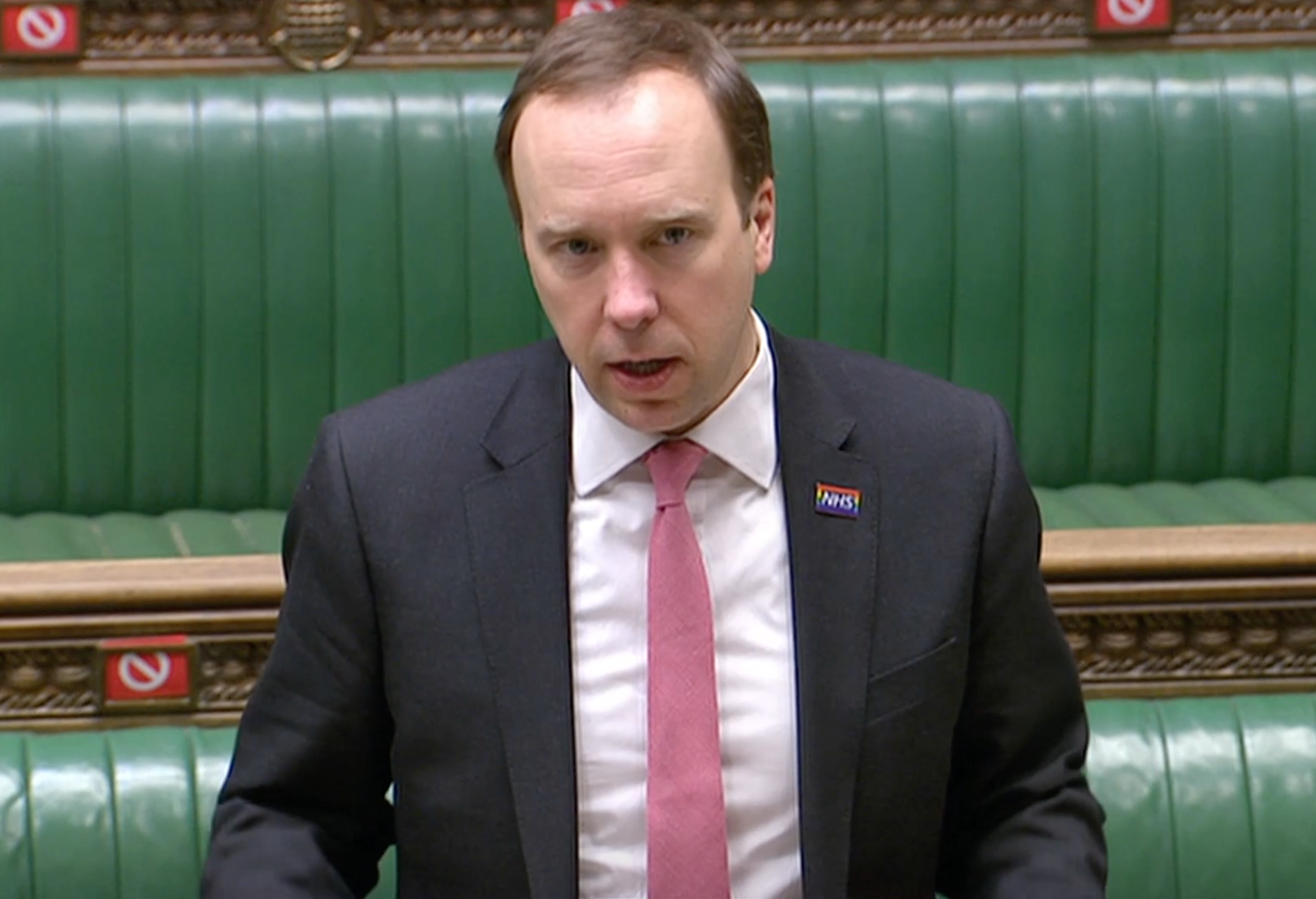Hancock promises social care plan this year amid criticism over NHS reforms
Health reforms grant major new powers to health secretary but social care must wait for reform

A plan to fix social care will be unveiled this year, health secretary Matt Hancock has promised as he revealed the largest shake-up of the NHS in a decade.
But critics warned further delays were another example of the government “kicking the can down the road” on a sector that has spent years in crisis.
Mr Hancock’s pledge comes almost two years after Boris Johnson said he had a plan for social care as he took office. In July 2019, the prime minister said: “I am announcing now – on the steps of Downing Street – that we will fix the crisis in social care once and for all, and with a clear plan we have prepared to give every older person the dignity and security they deserve.”
At that stage, the Health Foundation predicted a funding gap of more than £4.4bn predicted by the Health Foundation. During the coronavirus pandemic, care homes faced widespread infections and deaths with more than 25,000 care home residents dying after becoming infected.
Unveiling his white paper on Thursday, Mr Hancock told MPs: “The first set of measures promote integration between different parts of the health and care system and put the focus of health funding on the health of the population, not just the health of patients.
“Health and care have always been part of the same ecosystem with an ageing population with more complex needs, that's never been more true. Our goal is to integrate decision making at a local level between the NHS and local authorities, as much as is practically possible.
“We’re committed to the reform of adult social care, and we will bring forward proposals this year.”
The plans would re-structure the health service into more than 40 new integrated care organisations across England and give sweeping new powers to the health secretary, rolling back the independence of NHS England, which was created under reforms passed in 2012. Mr Hancock will have the power to direct NHS England as well as the ability to intervene in local reconfiguration of services “at any point”.
Jonathan Ashworth, the shadow health secretary, warned about gaps in the proposals on staffing and care. He said: “Legislation alone is not the answer to integration. We need a long-term, funded workforce plan. We’ve not got one. We need a long-term, cross-governmental health inequalities plan, we’ve not got one. And we need a sustainable social care plan. We were promised one on the steps of Downing Street, we still don’t have one.”
Liberal Democrat health spokesperson Munira Wilson told the Commons: “On this day eight years ago, the government announced and then legislated for a new funding model for social care which the Tories then scrapped two years on. Eight years on, we have yet another NHS reform announcement and only yet another promise to reform social care.
“With 25,000 care home deaths during this pandemic, what will it take for the prime minister to make good on his promise to fix social care?”
Under the NHS legislation the secretary of state will have the power to pay some social care providers directly, but the proposed legislation does not alter the main funding for social care which is via local councils.
It also plans to give the Care Quality Commission the ability to investigate local councils performance on providing social care services.
Sara Gorton, head of health at Unison, said: “The pandemic has laid bare the extent of the social care crisis, yet the sector must now wait many more months before it receives government attention.
“Politicians have talked about integrating health and social care for years. But that can’t happen while care is in a state of permanent crisis.”
Chris Reynolds, chairman of the health and care board at the Institute and Faculty of Actuaries, said the paper is a “step in the right direction”, but added: “Regrettably the government has kicked the can down the road on providing clear solutions to the social care funding crisis.
“With Covid-19 exacerbating the pressures already placed on the social care system and the NHS under increasing budgetary strain, it is disappointing that this white paper has failed to set out a clear strategy for tackling social care in both the short and the long term.”
Since the government's proposals were leaked last week, the plan has also faced criticism for such a huge overhaul of the health service at a time when the NHS has been pushed to the brink as Covid-19 has overwhelmed hospitals and extended treatment waiting lists to record levels.
Subscribe to Independent Premium to bookmark this article
Want to bookmark your favourite articles and stories to read or reference later? Start your Independent Premium subscription today.

Join our commenting forum
Join thought-provoking conversations, follow other Independent readers and see their replies